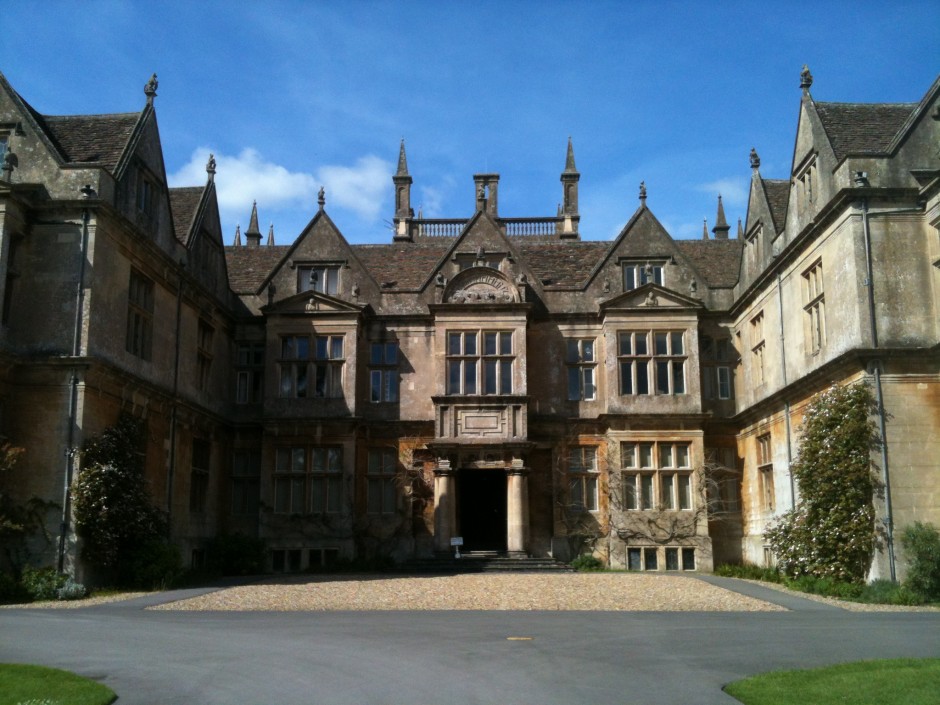Most of the last two weeks I’ve been tackling my final university marking of the year: the end-of-module assignments for the Open University. As well as marking my own students’ work, I’ve been second-marking another two groups, so there was a fair bit to do. It’s always interesting, not least because it’s a chance to see what two other tutor groups have been up to; but I can’t pretend I’m not glad that it’s over and in the post!
Now I’m on to School Season. Before the summer holidays I will be doing 6 days in 5 different schools, so expect a lot of school-related posts! I’m looking forward to it: I haven’t been actually in a classroom teaching since the Winchester University term finished, and I miss it.
So the timing of NAWE’s Writers-in-Schools Skills Sharing day in Corsham Court, on June 1st, could not have been much better. NAWE are the National Association of Writers in Education, and they are superb. Their role is to support the teaching of creative writing of all sorts, and in all places, and they do it brilliantly. Anyone who’s working as a writer in education really should join them – the Public Liability insurance alone is worth the fee – and the quality of their activities makes a complete nonsense of Arts Council England’s decision to stop funding them in 2011. Thankfully, because it is such a worthwhile and well-run organisation, it is able to survive, and run events like this one.
The remit for the day was to enable writers who work in schools to boost their skills and knowledge, and it certainly worked. I went to learn from how others do the job I do, and to meet interesting fellow-professionals, and it hit the nail on the bonce in both cases. I believe that teaching writing is very much like doing writing itself: if you don’t keep moving forward – trying out fresh experiments, setting yourself new challenges – you’ll end up getting stale and rut-bound. And there’s no better way to become a better teacher, than to share tips and techniques with others.
So, what did I learn?
First, that the future seems bright for creative writing in schools. Despite the general opposition to Gove’s curriculum reforms, there’s a lot of good in them when it comes to reading and writing. Pupils will be reading a much wider range of poetry than is currently the case, and from a young age; there will be a return to reading whole books, rather than just extracts; and writing will be taught as something that emerges out of reading, which of course is right. Add to this the launch of the new Creative Writing A-Level, which NAWE helped to develop, and things look good.
Second, that writers going into schools works, and can be proven to work. I have always believed that what I do is a good thing, of course, or I wouldn’t do it; but because I’m not around to see the afterlife of one of my visits, I’ve just had to take that on faith. But thanks to research from The Write Team and CWIG, now I know it’s true, and can also prove it to others.
Third, Naomi Alsop, of Warwick University, is an awesome teacher and any kids taught by her are in for a treat. Naomi runs a module on teaching in schools for the Warwick Writing MA, and after her workshop, I wished I could do that whole module! Naomi’s core belief is very much my own: that one’s teaching practice is an extension of one’s writing practice, and that we need to bring ourselves into whatever we take to the children. However, she helped me to see how I could go further than that: not teaching kids just to do what I do, but running workshops which help them to find their own ways of doing writing. I shall be using that idea in my planning for my summer school visits.
Fourth, I learned about things that I don’t personally do, but which maybe I could still use: visual poetry, sound poetry, and using music. The music session was perhaps a stretch too far for me – I can’t play any instrument and I don’t know any songs that pupils might know! – but Paula Claire’s session on visual and sound poetry opened lots of doors. Despite my initial scepticism, by the end I saw how these could be extremely useful to engage pupils with poetry. In fact I plan to use them in the sessions I will be running for the 10 Days Creative Collisions Schools Engagement Project in September.
I also met some cool and funky people (does anyone say that kind of thing now? Perhaps I should be calling them all ‘sick’?), but I’m out of typing time. Long live NAWE and onwards, Writers In Schools!

